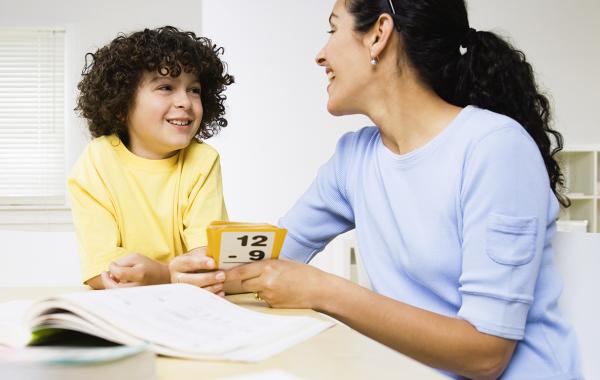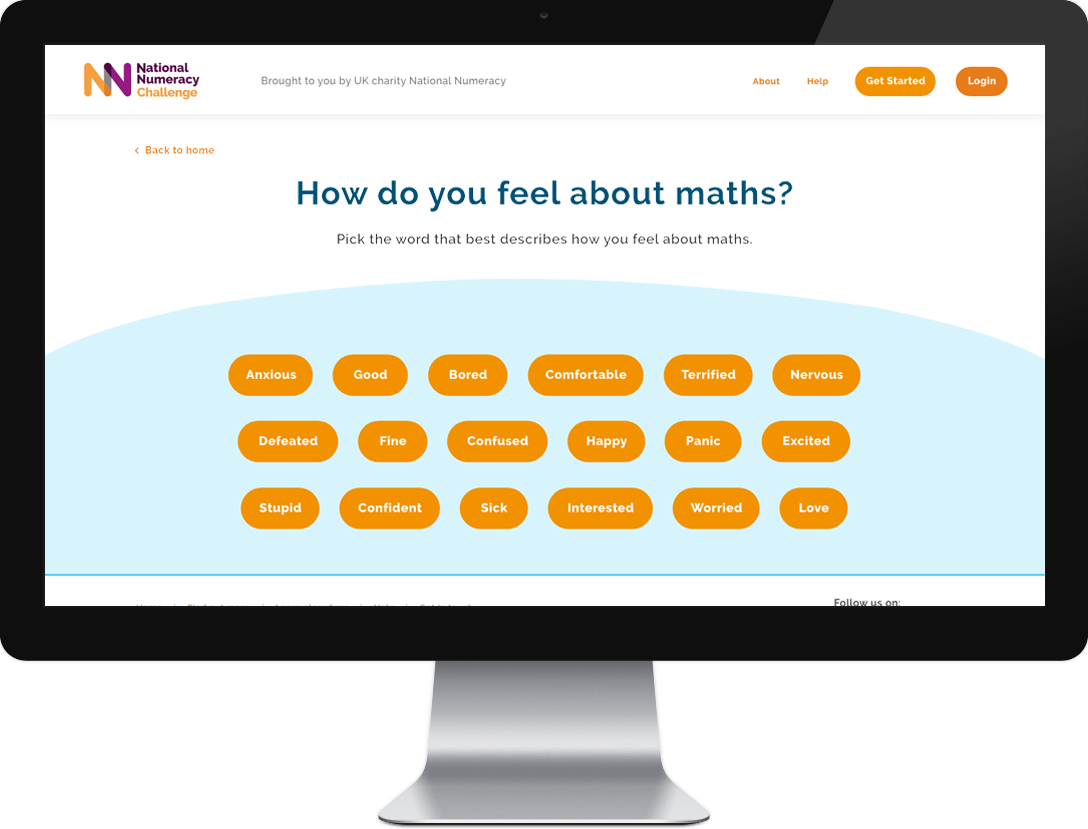Over a third of parents, 41%, remember their mums saying “I’m not good at maths” or “maths is hard” during their childhood. In contrast, only 14% recalled similar comments from their dads.
Furthermore, nearly half (48%) of parents surveyed said their fathers expressed positive attitudes towards maths, using phrases like “I like numbers” or “I enjoy maths,” whereas only 26% of mums had said similar things.
Parents who received negative comments from their own parents are highly likely to pass the same attitudes down to their own children
35% of parents admit they make similar negative comments about maths in front of their children, reinforcing the same negative beliefs they experienced growing up. However, parents who had mothers who felt more confident with numbers, felt more confident themselves.
Survey respondents whose mothers had low number confidence scored themselves 6.2 out of 10 for maths confidence. But if their mothers felt more number confident about numbers, the average score rose to 8.3.
Children’s confidence is linked to their parents’ attitudes
Interestingly, survey results show that when parents admitted to expressing negative views about maths, their child’s average confidence score drops to 6.8. On the other hand, positive reinforcement raises the child’s confidence to 7.7.
The study also found parents spend much more time reading with their children in comparison to maths-related activities. Parents spend double the amount of time reading in the evenings compared to maths. An average of 46 minutes a week was spent reading with their children at bedtime, but just 23 minutes on maths-based activities like homework help or playing number games. This imbalance could be reinforcing the idea that number confidence is less important than reading, potentially contributing to children’s lower confidence with numbers.
Being positive with children about numbers is one of the most powerful things you can do
Many people’s struggles with maths begin with messages they absorb in childhood. With a marked gap in number confidence between men and women, and anxiety around maths often passing from one generation to the next, National Numeracy is committed to breaking this cycle. This Number Confidence Week, the charity is empowering parents, carers, and educators to build their own confidence with numbers and inspire a new intergenerational cycle of positivity around maths.
Justine Roberts, Mumsnet founder and CEO, said:
"It's clear from this survey that the way mums feel about maths, and how they talk about it with their children, has significant effects. We know from conversations on Mumsnet that confidence about maths can be affected by gendered perceptions and stereotypes, which leads to a gender gap in number confidence. This isn't an abstract concept – it's something that has very real consequences for women in everyday life, from their willingness to talk about finances to their ability to help their kids with homework. We're really pleased to be working with National Numeracy to highlight this issue and help change the narrative around maths for parents and children."
Sam Sims, Chief Executive of National Numeracy, said:
“This new research underscores the importance of changing the narrative around maths at home, particularly for parents. Positive engagement with maths early on can help break the negative intergenerational maths cycle.
“While feeling anxious about maths is understandable, it is of great concern that parents believe they are ‘not good’ at maths and can inadvertently pass that on to their children. Crucially, this can be changed. Everyone can improve their numeracy, and developing a positive attitude towards the value of maths in everyday life can not only profoundly impact our lives but also the lives of the children in our care.
“National Numeracy is working hard with parents/carers and teachers across the UK to break this intergenerational cycle by boosting adult numeracy and fostering the confidence needed to use numbers in daily life and see the value of maths in their lives.”








